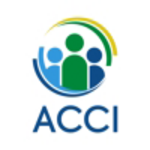
2025 Annual Conference
April 15–17, 2025
Omni William Penn, Pittsburgh, PA, USA
IMPORTANT NOTICE: The date, time, and room assignment of YOUR presentation is SUBJECT TO CHANGE.
Proposal authors can use this tool to see where they have been placed in the program agenda for an Oral or Poster Session.
Scroll down to search by the Submitter or Author Name, by Date/Time, or by Keywords by expanding FILTERS.
Confirm your place in the schedule by following the instructions that were emailed to you. Each presentation must have a separate paid registration. Contact the ACCI office immedicately by email at admin@consumerinterests.org to report any conflict, all corrections to the details of the presentation (including author names and the order they are listed as this is how it will be in the final program), or if you have any questions. Please be sure to reference the session title(s), date(s), and time(s) when you contact us.
G1b Vulnerable Families and the Effect of Early Economic Hardship on Obtaining Child Support
Short Description
Evidence on child support – or court-ordered payments from the noncustodial parent to the custodial parent – shows receiving payments improves child welfare. Yet, many eligible families do not establish paternity, a prerequisite to child support, nor do they obtain an award. These families are also disproportionately never-married, low income, and have less education. Compounding their financial vulnerability, these same families have also been shown to become disconnected from the labor force and means-tested government support during periods of financial hardship. To measure how these financially precarious families respond to unexpected hardship, I combine the first five years of the Future of Families and Child Wellbeing Survey with restricted medical records (1998-2000). Then, I construct a sample of mothers who are child-support-eligible at the time of their child’s birth and exploit a medically determined, severe, and random health shock that effects the child. Importantly this health shock is medically determined to be exogenous to the mother’s behavior e.g., smoking, and has been shown to induce financial hardship. Exploiting this random variation, I measure the likelihood of the custodial parent establishing paternity or obtaining a child support order one year later. I find that in response to increased financial hardship, mothers are 9 percentage points more likely to establish paternity, but I find no significant relationship to establishing child support. These findings speak directly to the significant challenges this population faces and the need for program intervention directly targeted to reducing barriers for these parents. Broadly, they also highlight the additional barriers to financial barriers this group faces which is particularly concerningly in light of increasing precarity and a patch work safety net.
Type of presentation
Accepted Oral Presentation